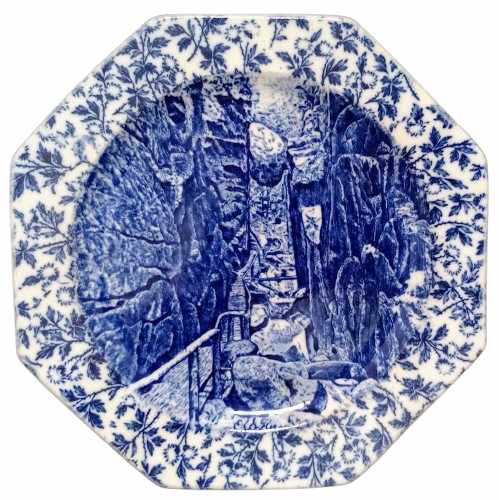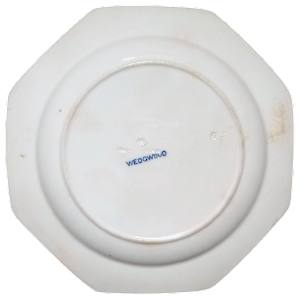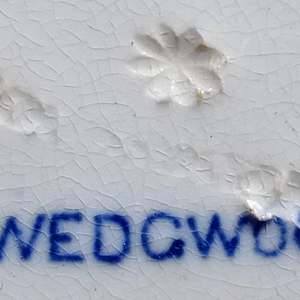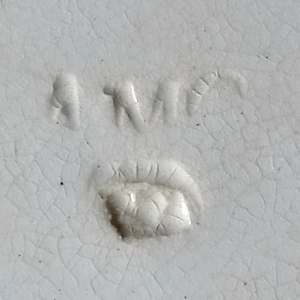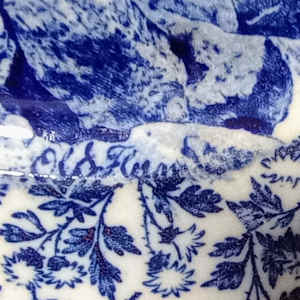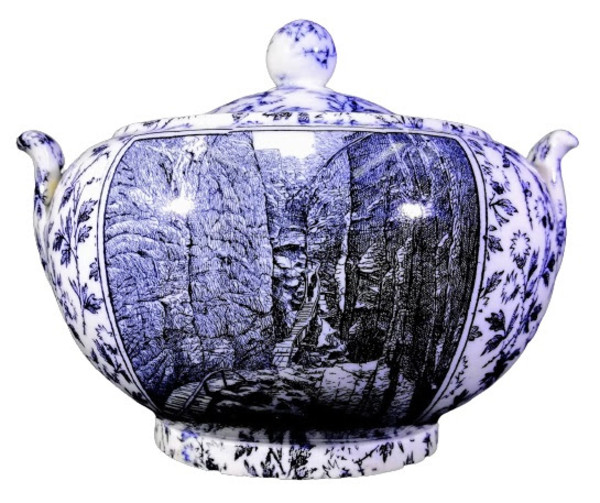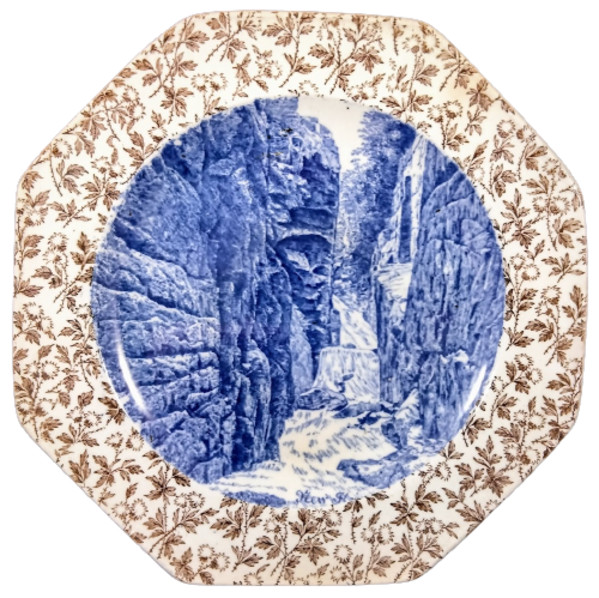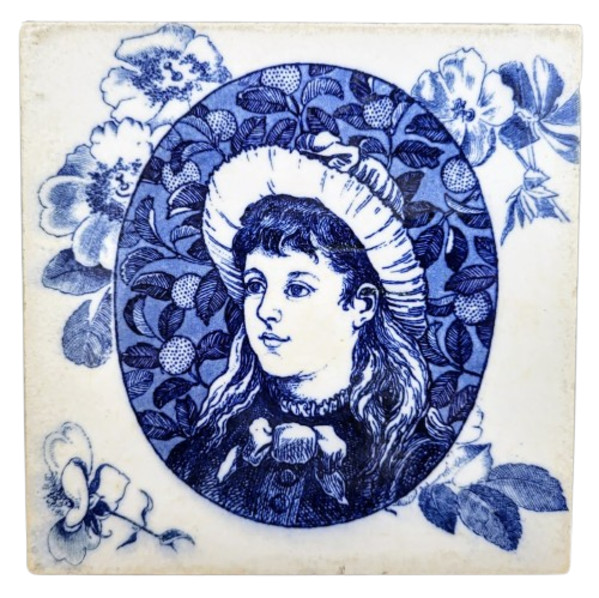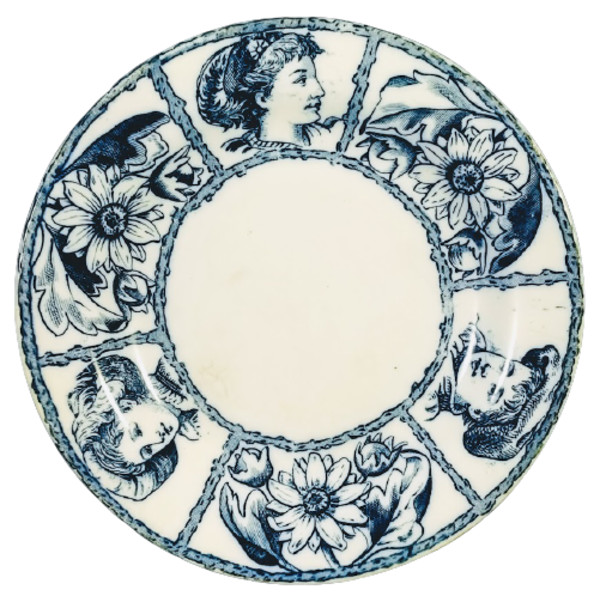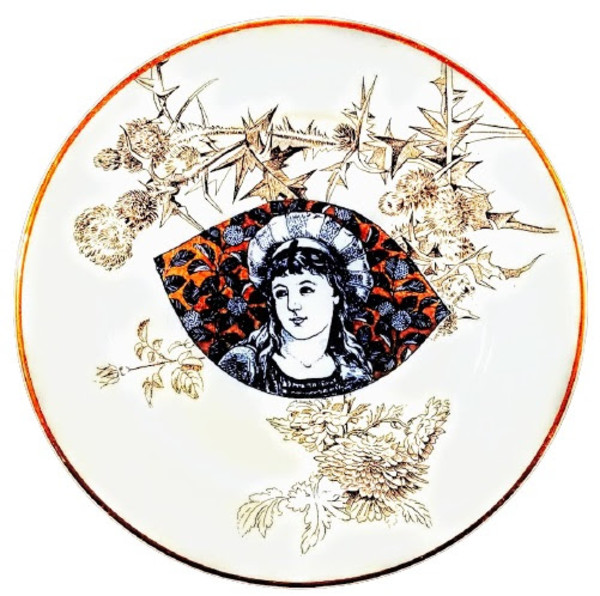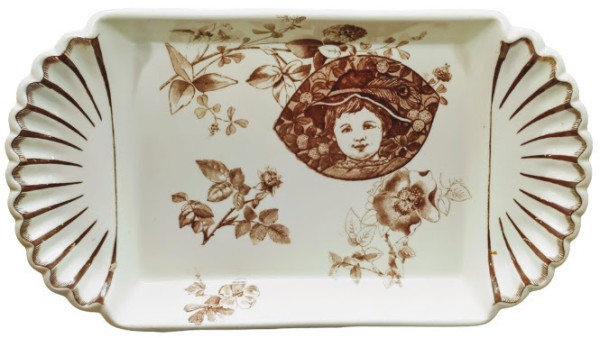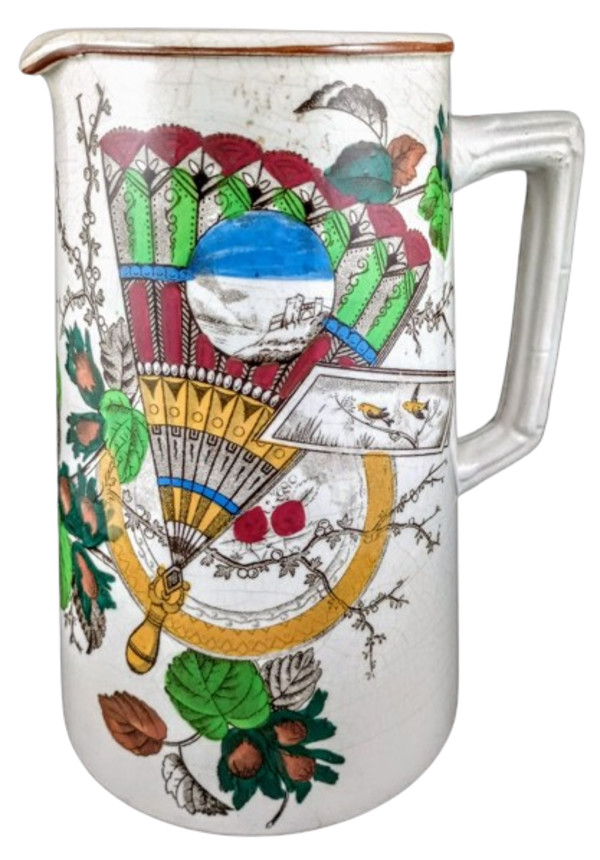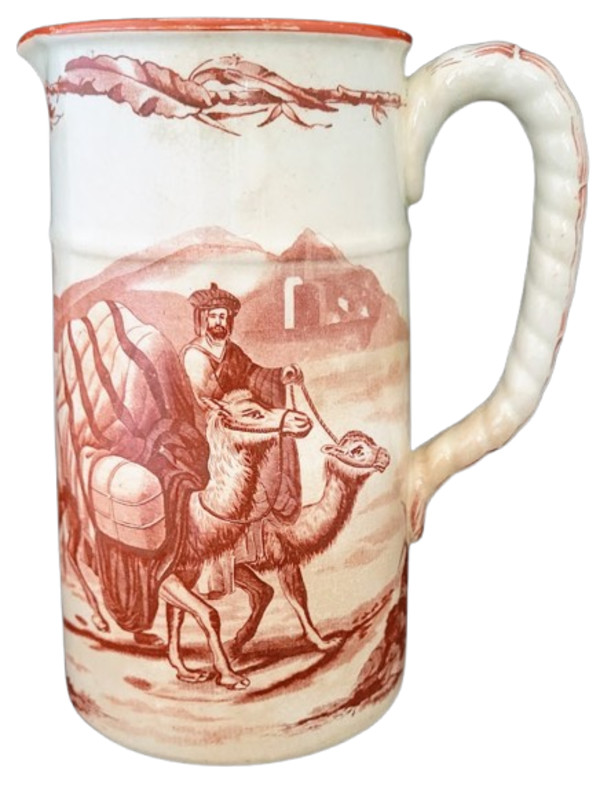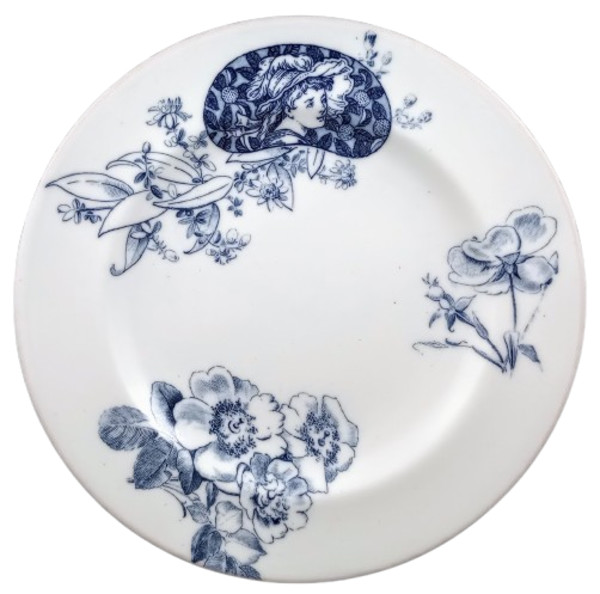- Josiah Wedgwood
- Unnamed (Canyon Path), 1884
- Earthenware
- 6.75 x 6.75 in (17.15 x 17.15 cm)
-
Not For Sale
Plate, 6.75 x 6.75 inches. Blue transfer. Impressed maker's mark for Wedgwood. The three-letter code is difficult to make out, but other patterns from this series are dated to c. 1884-1885. This date seems likely, as the floral sheet pattern around the well image is Wedgwood's 'Pompadour' diaper, which appeared on wares in the 1880s. The central image depicts steep canyon walls with a river or waterfall rushing towards the viewer. On the left side of the canyon wall, a narrow wooden path with a railing runs. At the top of the stairs, a large boulder is wedged between the canyon walls. There is some incomplete text at the bottom of the image which seems to read ‘Old Fl...'
Josiah Wedgwood was born in Burslem, Staffordshire, on July 12, 1730, into a family with a long tradition as potters. At the age of nine, after the death of his father, he worked in his family's pottery. In 1759 he set up his own pottery works in Burslem. There he produced a highly durable cream-colored earthenware that so pleased Queen Charlotte that in 1762 she appointed him royal supplier of dinnerware. From the public sale of Queen's Ware, as it came to be known, Wedgwood was able, in 1768, to build near Stoke-on-Trent a village, which he named Etruria, and a second factory equipped with tools and ovens of his own design. At first only ornamental pottery was made in Etruria, but by 1773 Wedgwood had concentrated all his production facilities there. During his long career Wedgwood developed revolutionary ceramic materials, notably basalt and jasperware. After Wedgwood's death in Etruria on January 3, 1795, his descendants carried on the business, which still produces many of his designs.
- Subject Matter: Aesthetic (Vignette)
- Collections: Aesthetic Transferware, Josiah Wedgwood
